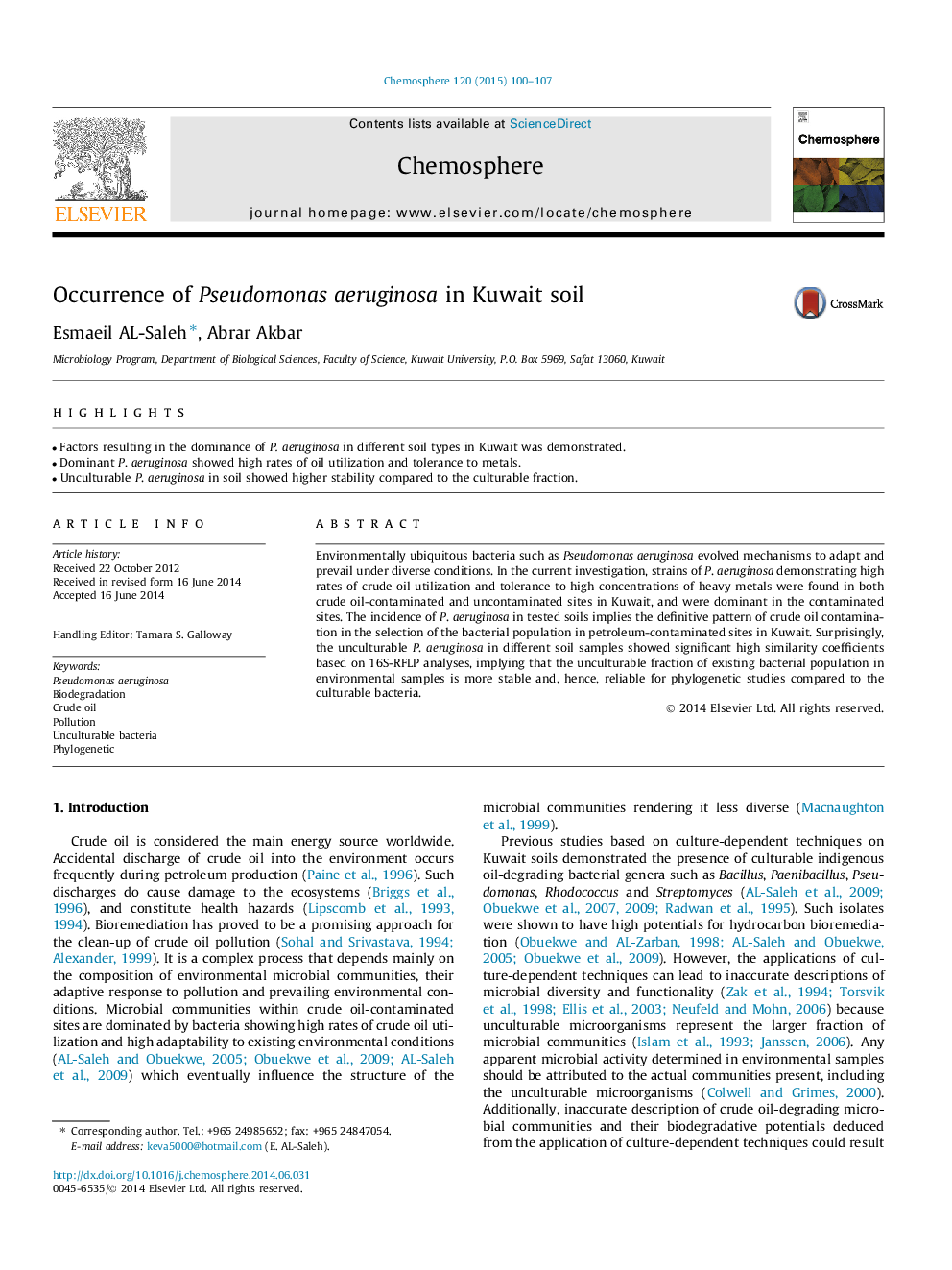| Article ID | Journal | Published Year | Pages | File Type |
|---|---|---|---|---|
| 6308129 | Chemosphere | 2015 | 8 Pages |
Abstract
Environmentally ubiquitous bacteria such as Pseudomonas aeruginosa evolved mechanisms to adapt and prevail under diverse conditions. In the current investigation, strains of P. aeruginosa demonstrating high rates of crude oil utilization and tolerance to high concentrations of heavy metals were found in both crude oil-contaminated and uncontaminated sites in Kuwait, and were dominant in the contaminated sites. The incidence of P. aeruginosa in tested soils implies the definitive pattern of crude oil contamination in the selection of the bacterial population in petroleum-contaminated sites in Kuwait. Surprisingly, the unculturable P. aeruginosa in different soil samples showed significant high similarity coefficients based on 16S-RFLP analyses, implying that the unculturable fraction of existing bacterial population in environmental samples is more stable and, hence, reliable for phylogenetic studies compared to the culturable bacteria.
Related Topics
Life Sciences
Environmental Science
Environmental Chemistry
Authors
Esmaeil AL-Saleh, Abrar Akbar,
